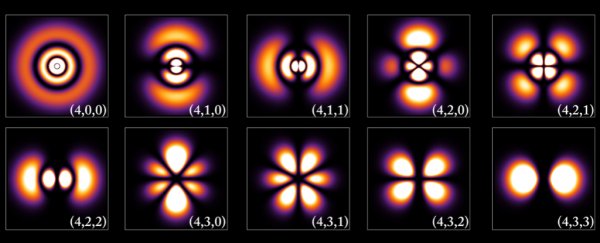When it comes to physics, gravity rules pretty much everything we can see in the Universe - it keeps planets orbiting stars, stars orbiting black holes, and, well, all of us stuck on the planet.
But while all the massive objects in the Universe have an influence on gravity, researchers have failed once more to show a connection between gravity and quantum mechanics.
In other words, gravity just doesn't seem to care about the quantum world. And that's kind of a bummer for our hopes of a theory of everything.
Let's back up here a second though, because all this quantum/classical stuff can get a little bit messy.
In physics, there are basically two theories that we have to explain the Universe - classical physics, which encompasses all the work done before the 20th century, and describes the behaviour of pretty much everything you can see - planets, stars, humans, etc.
And then there's quantum mechanics, the newer, edgier approach, which attempts to explain the strange behaviour of all the tiniest particles in the Universe, such as photons, electrons, and the elusive Higgs boson.
But you've probably heard that physicists really want to unify these two theories to create a "theory of everything" that can explain the Universe as a whole, both observable and tiny, all with one neat little set of equations.
And this latest study is part of that attempt - a team of Chinese scientists from Huazhong University of Science and Technology in Wuhan used a new technique to look for any kind of connection between gravity and quantum spin, which would be evidence of classical physics and quantum physics being connected.
So, according to general relativity - the defining theory of classical physics - the influence of gravity is identical for all objects.
This is known as the equivalence principle, and it basically just means that, thanks to gravity, objects with exactly the same mass will follow identical trajectories if they're in free fall inside a vacuum.
As crazy as that sounds, we've observed it time and time again since Galileo first tested it (imperfectly, thanks to the effects of air resistance) at the Tower of Pisa in 1589 - and you can even see it in action in the video below:
But scientists hypothesise that, if there's some kind of link between classical physics and quantum mechanics, then - on some small level at least - gravity should act slightly differently depending on the quantum spin of an object.
Quantum spin is a type of intrinsic angular momentum that describes what an electron or atom is doing, and, basically, if we can find it exerting an influence on gravity, then it'd be incredibly promising for the prospect of a unified theory in the future.
Researchers have tried and failed to look for this quantum influence on gravity in the past, but in this latest experiment, the Chinese team tested it by essentially recreating Galileo's famous Tower of Pisa free fall experiment on a very, very small scale.
They took two rubidium atoms with opposite spins, cooled them to a few millionths of a degree above absolute zero, and put them in a vacuum tube.
They then gave them a little kick with a laser beam from below, which propelled them upwards in the tube - before eventually falling to the bottom again. Creating a rising and falling "fountain" of atoms.
Using a technique called atom interferometry, which exploits the wave nature of atoms to monitor their motion in incredible detail, the researchers measured exactly how quickly the atoms were falling each time.
They found that, despite having opposite spins, the free fall acceleration of the two atoms agreed with each other to within one part in 10 million - which is pretty damn identical.
And it suggests that gravity gives precisely zero f**ks about your quantum spin, which is problematic for a unified theory going forward.
But - and this is a big but - this study just shows there was no effect on gravity that we could measure. And as history has shown, scientists are constantly getting better at measuring things.
So hold onto your hats and get ready for more of these studies in the years to come. If anyone spots a change in the behaviour of gravity, we could just be one step closer to a theory of everything. And if we don't, well, the possibilities are just as exciting… watch this space.
This research has been published in Physical Review Letters.
